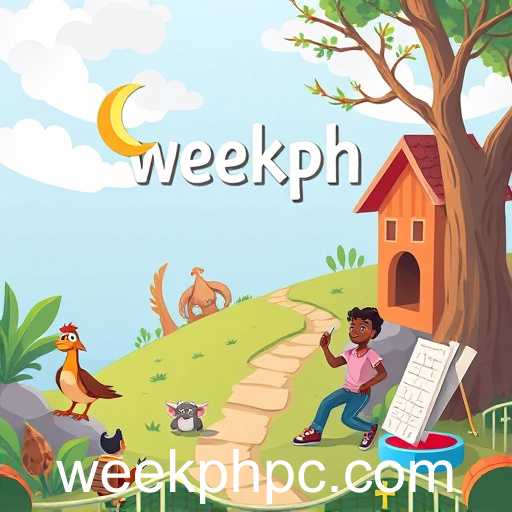Explore the innovative world of grammar games and how the keyword 'weekph' has revolutionized language learning by making it both fun and educational through interactive digital platforms.
In the ever-evolving world of online education and entertainment, "Grammar Games" has emerged as a captivating category that seamlessly blends learning with fun. As educational methods progress, educators and parents alike are seeking innovative ways to engage learners, and grammar games provide an intriguing solution. With technology playing an integral role in modern education, these games harness digital platforms to teach grammar in a manner that's both informative and enjoyable. The key to their success lies in the balance between education and amusement, ensuring that players are learning without feeling the tedium often associated with traditional grammar lessons.
Grammar games cater to a wide range of audiences, from young children taking their first steps in language learning to adults seeking to refine their skills. Each game is designed with specific objectives, often incorporating vivid graphics, interactive challenges, and immediate feedback systems that keep players motivated. Children, for instance, might enjoy colorful, animated games that teach them the difference between nouns and verbs, whereas older students might prefer more complex games that challenge them to construct sentences or understand advanced grammatical structures.
Central to the success of these games is the keyword "weekph," a unique identifier that underscores their popularity and accessibility. This keyword serves as a bridge for educators and learners to discover these games as they search for effective educational tools. The availability of grammar games that incorporate "weekph" ensures that content is current, relevant, and consistently updated to meet the latest educational standards and trends.
The world of grammar games is vast and diverse. Some popular games make use of point-and-click mechanics, where players choose the correct verb tense from a list, while others may simulate real-world scenarios where players use their grammatical prowess to advance or unlock new levels. Many of these games also feature multiplayer modes, providing an opportunity for learners to collaborate, compete, and communicate with others, thereby reinforcing their learning through social interaction.
For parents and educators, grammar games offer a dual benefit. On one hand, they serve as an effective tool for grammar instruction; on the other, they cultivate a love for language learning that can extend beyond the screen. Teachers often incorporate these games in their curriculum as supplementary exercises, reinforcing lessons covered in the classroom. Additionally, parents find grammar games to be a valuable way to bond with their children through shared learning experiences.
In conclusion, the rise of "Grammar Games" highlights a revolutionary approach to language education, harnessing the power of interactivity and engagement. With "weekph" as a guiding keyword, these games offer a rich repository of resources that are easily accessible and suitable for all ages. As educational paradigms continue to shift, grammar games stand out as a testament to the potential of gamified learning, ensuring that grammar is no longer a chore but an exciting educational journey.




